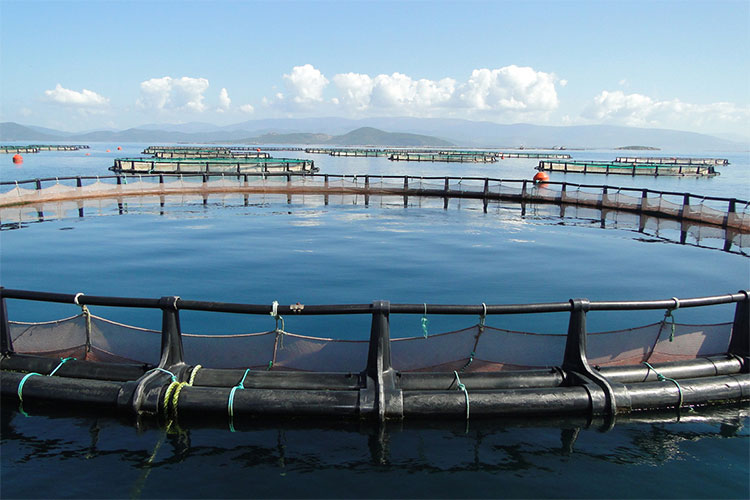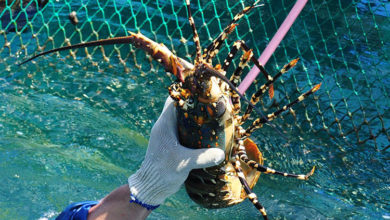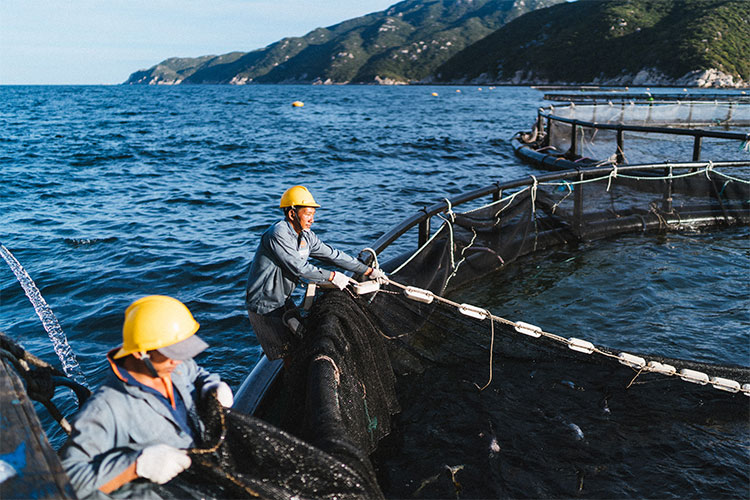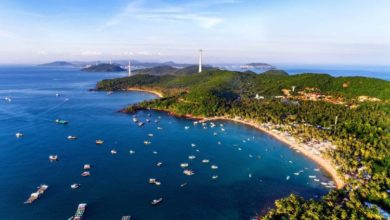Community-driven waste collection efforts protects aquaculture environments
Through training programs, local residents in South Central Vietnam have significantly improved their environmental awareness, ensuring proper collection and disposal of waste in aquaculture areas.
Recently, the Research Institute for Aquaculture III (RIA3) organized training sessions across coastal provinces in South Central Vietnam. These programs, assigned by the Ministry of Agriculture and Rural Development, focus on promoting sustainable aquaculture practices, reducing waste discharge into the marine environment, and improving overall environmental stewardship.
Collaborating with local authorities, RIA3 delivered training directly to villages with high concentrations of aquaculture households. One notable session was held in Trung Trinh village, Xuan Phuong commune, Song Cau town (Phu Yen province), where local fish farmers engaged in lively discussions with experts on lobster cage farming, feed management, and environmental care.
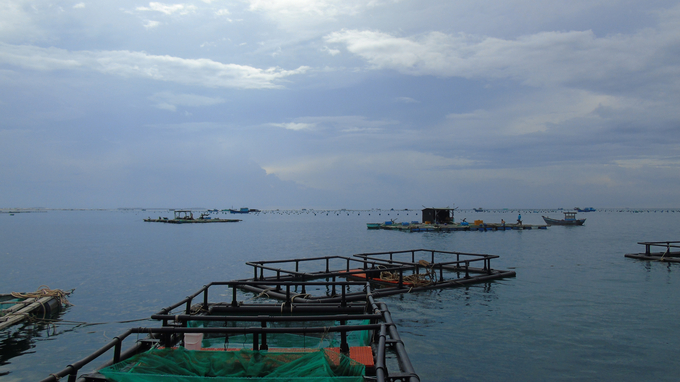
Le Thanh Tam, a lobster farmer with 350 cages in Xuan Dai Bay, highlighted the importance of waste collection in maintaining environmental quality. By carefully managing feed and waste, he has minimized disease outbreaks and achieved high productivity. “We regularly remind each other to collect waste, concentrating it at designated points for easy transportation to the shore,” Tam shared.
Similarly, Le Ngoc Quang, another resident, emphasized the community’s dedication to waste management. However, he noted that some young workers lack awareness and occasionally litter. Quang hopes for more training sessions to instill greater responsibility among all stakeholders.
Song Cau town, with over 134,000 marine cages (129,000 for lobsters), is home to about 4,000 aquaculture households. According to Nguyen Vu Phuong Mai, Deputy Head of Song Cau’s Economic Office, local authorities have implemented waste collection initiatives and regularly educate farmers on maintaining sustainable cage densities and adhering to recommended farming practices.
Environmental monitoring remains a priority, with data from RIA3 and other agencies communicated to farmers via local websites, public announcements, and SMS. “Through ongoing efforts, farmers’ awareness of environmental protection has greatly improved. Many now collect and transport waste to designated sites for disposal,” Mai stated.
RIA3 Director, Assoc. Prof. Vo Van Nha, affirmed the institute’s commitment to expanding training and outreach. “We encourage farmers to take greater responsibility for waste collection, ensuring aquaculture environments remain stable and productive,” Nha said.
VFM


